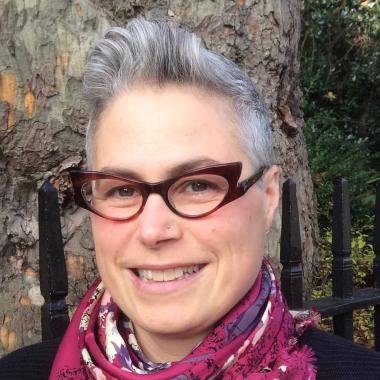

Programme
- 9.30–10am: On-site registration
- 10–10.15am: Opening session: Welcome - Dibyesh Anand and Alex Hughes
- 10.15–11.45am: A roundtable on Student Partnerships and Co-Creations as Anti-Racist Tools
- Democratic Education Network Project - Farhang Morady (and students)
- Decolonial approaches to the core legal curriculum - Manvir Kaur Grewal and Hennah Masih
- Pedagogies for Social Justice: Cheyenne Holborough, Jennifer Fraser, Fatima Maatwk, Tino Rwodzi
- Understanding Genetics to Counter Racial Discrimination: Emanuela Volpi and Lorna Tinworth (and students)
- Chair: Sobia Razzaq
- 11.45am–12pm: Tea break
- 12–1.30pm: The University as a Racialized Institution
- Kalwant Bhopal (University of Birmingham), Harshad Keval (Canterbury Christ Chruch University), and Remi Joseph-Salisbury (University of Manchester).
- Chair: Ben Pitcher
- 1.30–2.30pm: Lunch break
- 2.30–3pm: Researching while Black: Negotiating Claims and Realities as PhD researchers
- Lonceny Kourouma, Stephanie Ifill, Kevon Jones and Henry Egbums.
- Chair: Rumy Begum
- 3–4.15pm: Decolonising the University: Easier Said Than Done?
- Priyamvada Gopal (University of Cambridge) in conversation with Dibyesh Anand
- 4.15-4.30pm: Tea Break
- 4.30–6pm: Towards An Anti-Racist University: Mapping the Territory
- Jason Arday (University of Glasgow), Winston Morgan (University of East London), Dave Thomas (Advance HE) & Rianna Walcott (King’s College London).
- Chair: Deborah Husbands
- 6–6.15pm: Closing Remarks - Alex Hughes and Dibyesh Anand
- 6.15–7.30pm: Reception hosted by University's EDI Committee and Democratic Education Network (DEN)
- Organising Committee: Dibyesh Anand, Zahra Butt, Deborah Husbands, Annapurna Menon, Farhang Morady, Ben Pitcher.
- Organiser contact: Grace Egbewole-Adereti ([email protected])
* All the speakers, other than those whose affiliation is mentioned, are from the University of Westminster.
Registration
Registration is via Eventbrite.
The 12 May conference is followed by an International Student Conference organised by DEN Wesminster on 13 May 2022 on ‘Power and Contestations in Global Worlds: Identities, Conflicts, and Developmental Challenges’.
Speakers' bios
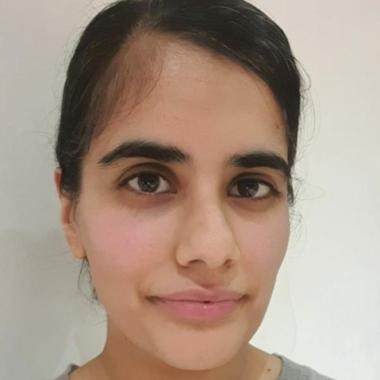
Manvir Kaur Grewal
Manvir Kaur Grewal is a writer and academic at the University of Westminster. She is mostly interested in socio-legal theory and inequalities, taking an intersectional lens with a focus on belonging and decolonial thought in the legal profession and higher education.
Speaking on: A roundtable on Student Partnerships and Co-Creations as Anti-Racist Tools

Henna Masih
Henna Masih is a recent law graduate from the University of Westminster and a founder of the anti-racist platform, Indigo Hub. Her interests include socio-legal theory, social justice and discourse on identity, intersectionality and decolonial thought in higher education, the legal profession and legal academia.
Speaking on: A roundtable on Student Partnerships and Co-Creations as Anti-Racist Tools
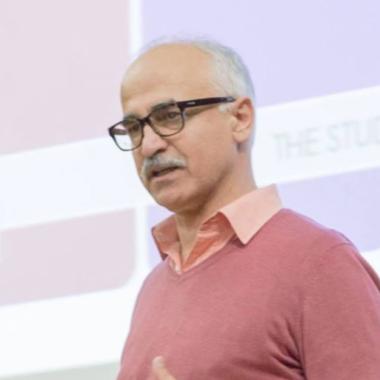
Farhang Morady
Farhang Morady is a Principal Lecturer in Development and International Relations. He has worked for 27 years in the University of Westminster's School of Social Sciences as a lecturer, programme leader, and, since 2016, as Director of the Democratic Education Network (DEN). He pioneered DEN, an extra-curricular and student-focused initiative, engaging students with local and global communities. This project has built links with several ethnic communities in London, and various vital strategic partners at the international level, including Georgia, Peru, Thailand, Turkey, and Vietnam. DEN has won an award for positively impacting students’ personal experiences at the University of Westminster in 2017, and in 2018 was a runner-up for the Students’ Experience Award at the prestigious Guardian University Awards. Farhang was awarded ‘Outstanding Teacher’ in 2013, 2014, 2016, and 2019 at the Staff Appreciation Awards managed by the Students Union. Farhang has also continued his research in international political economy, the US/Iranian conflict, and state and development in post-revolutionary Iran. He has published several articles, and his most recent publication is Contemporary Iran: Politics, Economy, Religion, published in 2020 by Policy Press.
Speaking on: A roundtable on Student Partnerships and Co-Creations as Anti-Racist Tools
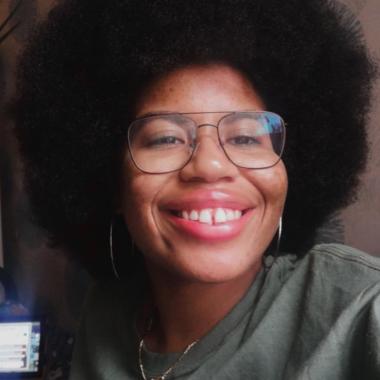
Cheyenne Holborough
Cheyenne Holborough is a British Caribbean student entering her final undergraduate year studying English Literature with Creative Writing at the University of Westminster. Over the years, she has found that studying English has never been relatable to her as the literature studied was never from the black perspective. Cheyenne hopes to not only change things on her course but for the entire University so that all the people who feel like her can be heard.
Speaking on: A roundtable on Student Partnerships and Co-Creations as Anti-Racist Tools

Jennifer Fraser
Jennifer Fraser is a non-binary queer academic at the University of Westminster who has spent the past 20 years in the UK teaching and researching at the intersections of literature, gender studies, queer theory and critical pedagogies. Their approaches to education are also shaped by experiences as a white settler migrant in Canada and by growing up between different linguistic and geographic spaces of ‘home’. These both/and experiences of identity formation have taught them to centre building relationships and sharing stories to develop collaborative analyses. Formally, Jennifer is Principal Lecturer in the School of Social Sciences and University Director of Student Partnership in the Centre for Education and Teaching Innovation. What Jennifer loves most about these roles is how they bring them into contact with other dreamers and co-conspirators for change.
Speaking on: A roundtable on Student Partnerships and Co-Creations as Anti-Racist Tools
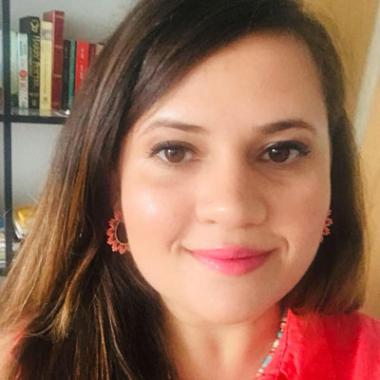
Fatima Maatwk
Fatima Maatwk (she/her) is an Egyptian-German, Muslim lecturer and researcher at the University of Westminster. In the Centre of Education and Teaching Innovation (CETI), Fatima’s engagement with student partnership ties directly into her work on both the Pedagogies for Social Justice and Students as Co-Creators project. Her interests include fostering decolonial spaces within the academy and doing good, ethical work towards social justice, through methods such as student-staff partnership. She also lectures at Westminster Business School where she completed her doctoral research, whilst she completed her bachelor and Master's degrees in Economics and Business Administration, at Humboldt University to Berlin. Prior to her academic career, Fatima worked in international development at both governmental and non-governmental organisations in Germany and Egypt. She worked on projects tackling public sector reform, alternative dispute resolution, human resources management, mediation, and negotiation.
Speaking on: A roundtable on Student Partnerships and Co-Creations as Anti-Racist Tools
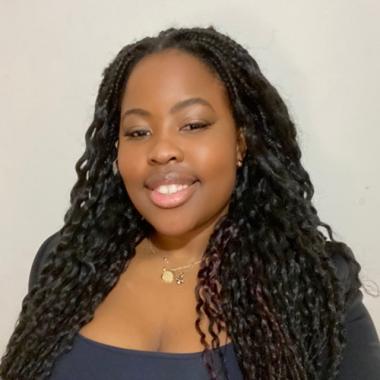
Tino Rwodzi
Tino Rwodzi is in her final year of her undergraduate degree at the University of Westminster and intends to continue her career in the world of biomedicine and healthcare. Tino has a keen interest in merging all disciplines and a belief that multiple perspectives are key for social progress. Born in Zimbabwe, she has been inspired by the voices of black writers and academics, taking inspiration to make science anti-racist and accessible. As a young woman navigating identity, in her final year she aims to draw on her own personal experience to create tools that forge a safe, open and de-colonial space at Westminster.
Speaking on: A roundtable on Student Partnerships and Co-Creations as Anti-Racist Tools
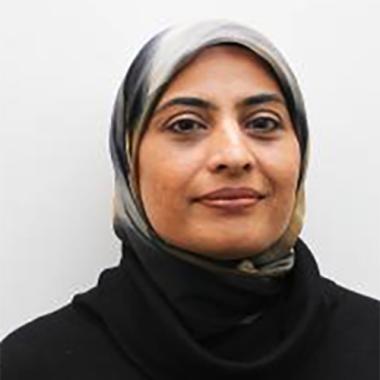
Sobia Razzaq
Sobia Razzaq is a senior lecturer in law at the University of Westminster at the Business and the Law Schools and also teaches law to business students at King's College London. She is an accredited mediator and a member of the FHEA. She is a co-chair of the Women of Westminster (WOW) a newly established women's network open to everyone, focussing on promoting gender equity, diversity, and inclusion. Sobia also sits on the EDI Committee for the University of Westminster and is the elected Equality Officer for UCU. Outside of work she is an Area Convenor for Herts Welcomes Refugees (HWR) supporting refugees, asylum seekers in Hertfordshire.
Speaking on: A roundtable on Student Partnerships and Co-Creations as Anti-Racist Tools
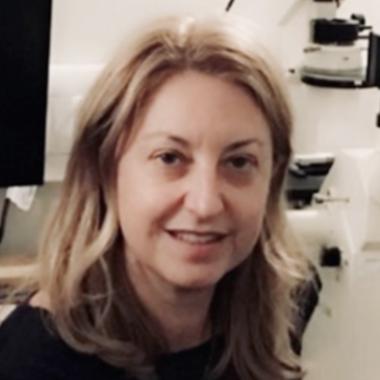
Emanuela Volpi
Emanuela Volpi is Reader and PhD Coordinator for the School of Life Sciences and College of Liberal Arts and Sciences at the University of Westminster. Her teaching and research expertise is in medical molecular genetics.
Speaking on: A roundtable on Student Partnerships and Co-Creations as Anti-Racist Tools
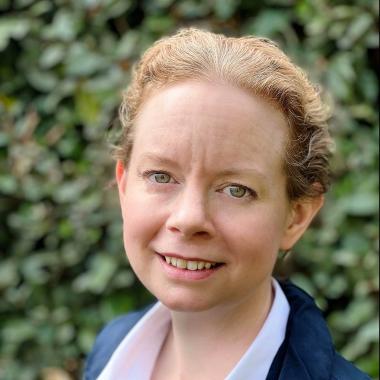
Lorna Tinworth
Lorna Tinworth is course leader for the full time Biomedical Sciences undergraduate degree course within the School of Life Sciences where, in addition to having several responsibilities, she leads a level 5 module entitled, ‘Medical Genetics and Genomics’.
Speaking on: A roundtable on Student Partnerships and Co-Creations as Anti-Racist Tools
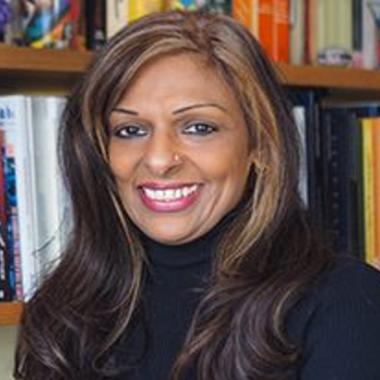
Kalwant Bhopal
Kalwant Bhopal is Professor of Education and Social Justice at the University of Birmingham. She was appointed Professorial Research Fellow from 2017-2020. In January 2020 she became Director of the Centre for Research in Race and Education (CRRE) in the School of Education. Kalwant’s research focuses on the achievements and experiences of minority ethnic groups in education. She has conducted research on exploring discourses of identity and intersectionality examining the lives of Black minority ethnic groups as well as examining the marginal position of Gypsies and Travellers. Her research specifically explores how processes of racism, exclusion and marginalisation operate in predominantly White spaces with a focus on social justice and inclusion. More recently she has conducted research focussing on the position of minority ethnic academics in higher education. Her research on this area has been used to inform policy making in higher education, particularly the development of the Race Equality Charter mark. She has published nine books, 10 edited collections and various journal articles.
Speaking on: The University as a Racialized Institution
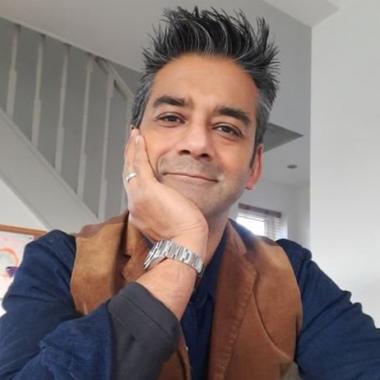
Harshad Keval
Harshad Keval is a writer, educator and currently Senior Lecturer in Sociology, with specialisms in Race, Postcolonial and Decolonial Theory at Canterbury Christ Church University, UK. He explores racisms, race-thinking, and the role of knowledge and social theory in perpetuating racialised injustice, especially in institutional frameworks and embodied oppressions. He aims at troubling and disrupting conventional demarcations of colonial modern legitimacies.
Speaking on: The University as a Racialized Institution
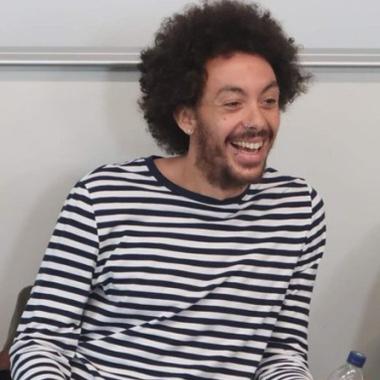
Remi Joseph-Salisbury
Remi Joseph-Salisbury is Presidential Fellow in Ethnicity and Inequalities at the University of Manchester. He has written widely on race, racism, and anti-racism, with particular interests in racism in education and policing. His co-authored book, Anti-Racist Scholar-Activism, was published with Manchester University Press in 2021. Remi is the Race and Resistance columnist at Red Pepper Magazine, and part of the Northern Police Monitoring Project and the No Police in Schools campaign.
Speaking on: The University as a Racialized Institution

Ben Pitcher
Ben Pitcher is Reader in Sociology in the School of Social Sciences at Westminster. Much of his teaching aims to engage students critically with race. He has written extensively on race, racism, and antiracism, including the books The Politics of Multiculturalism: Race and Racism in Contemporary Britain (2009), Consuming Race (2014) and Back to the Stone Age: Race and Prehistory in Contemporary Culture (forthcoming, 2022).
Speaking on: The University as a Racialized Institution
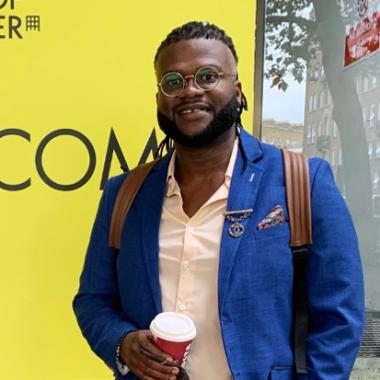
Lonceny Kourouma
Lonceny Kourouma joined the University of Westminster in September 2021 for his PhD that focuses on decolonising the curriculum, anti-racism and Black students’ expectations and experiences within higher education and PhD-level within the UK through a sociological lens. One of his focus areas is to examine Black students' lived experiences through their academic journey within higher education, as well as looking to more deeply interrogate how knowledge is produced by asking the questions: “What knowledge has been made part of academic agendas, and what knowledge has not? Whose knowledge is this? Who is acknowledged to have the knowledge, and who is not?”
Speaking on: Researching while Black: Negotiating Claims and Realities as PhD researchers
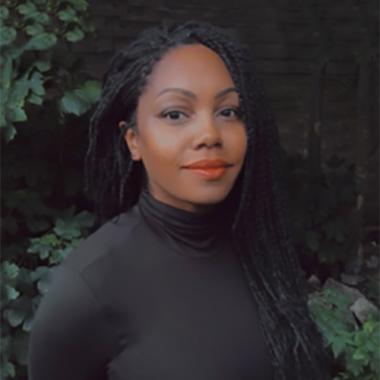
Stephanie Ifill
Stephanie Ifill is a Doctoral Researcher at the University of Westminster. She holds a batchelor’s degree with honours in Creative Arts, a first class Master's in Politics and Society, and has been awarded the University of Westminster Quintin Hogg PhD Studentship in Politics. Stephanie is currently in the midst of her PhD research, in which she is exploring theoretical questions surrounding self-sense making and liminality of the once colonised woman in postcolonial Europe. Standing at the nexus of feminist, postcolonial, spatial, and racial theory, Stephanie’s doctoral exploration seeks to add to Black feminist thought from the context of Europe. She is interested in the generation of knowledge which draws from lived experience, is undisciplinary in its approach, and is transnational in its exploration.
Speaking on: Researching while Black: Negotiating Claims and Realities as PhD researchers
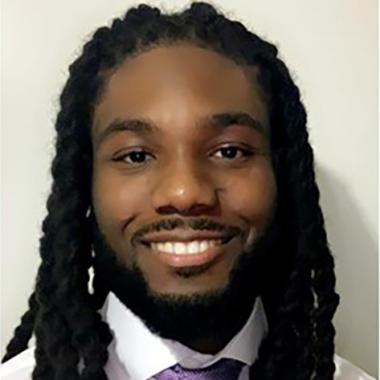
Kevon Jones
Kevon Jones is a first-year doctoral student in Politics and International Relations at the University of Westminster. Before joining Westminster he obtained a Masters in Political Economy from King's College London and his BA from Kingston University. The working title of his thesis is Marcus Garvey: A dream postponed, but not forgotten - What are the implications of "Africa for the Africans... those at home and those abroad''. His research will address key questions in relation to the state of African liberation struggles, Black self-determination and will show the importance of Garvey and his movement today.
Speaking on: Researching while Black: Negotiating Claims and Realities as PhD researchers
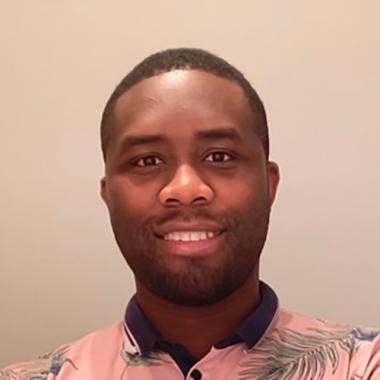
Henry Egbums
Henry Egbums is a PhD researcher in Psychology. His PhD thesis focuses on the assessment of children’s value structure and priorities in Africa. He has previously completed an undergraduate degree in psychology, counselling and therapies and a Master’s degree in research in clinical psychology and a diploma in mental health nursing. With for over 10 years of experience in the health sector, he has worked with service users such as children, adolescents and adults with various needs such as mental health difficulty, severe and profound learning disability, bipolar disorder, anxiety and depression, psychosis, social and emotional difficulties, autism spectrum condition, communication difficulties and dementia in various settings such as general hospitals, mental health units, care homes and special needs school. He believes that young people have the capacity to achieve their innate potential, most especially when they are inspired to dream big, discover, develop, and to deploy their talents. His research interest includes child and family psychology, development of children across lifespan, personal and national development, and psychotherapy. He published his first book in early childhood development in 2017. His long-term goal, amongst other interests, is to lecture and conduct research in the field of psychology.
Speaking on: Researching while Black: Negotiating Claims and Realities as PhD researchers
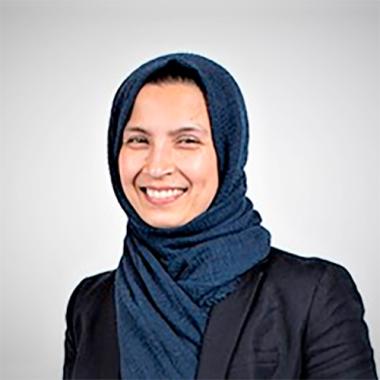
Gulshanara (Rumy) Begum
Gulshanara (Rumy) Begum is a Senior Lecturer in Nutrition and Exercise Science, in the School of Life Sciences, at the University of Westminster. Rumy has a BSc (Hons) in Biological Sciences, a PhD in Sports Nutrition, a Master's in Higher Education and is currently a fellow of the HEA. She strongly believes in “learning by doing” and feels such practices enable students to retain more knowledge and gain a deeper understanding. Rumy also has a solid focus on building positive relationships, where students and staff are comfortable with having conversations with her. In 2021, Rumy played a significant role in the Decolonising Life Sciences journey at the University of Westminster. She helped produce a Decolonising Life Sciences infographic, plus additional guidance documentation for module teams to utilise whilst updating modules/courses. This work has been recognised as transformative and has had impact across the institution and beyond. Rumy also has extensive experience with student-staff co-creation work. She believes time, effort and mindfulness during such work are crucial to developing true non-hierarchical partnerships.
Speaking on: Researching while Black: Negotiating Claims and Realities as PhD researchers
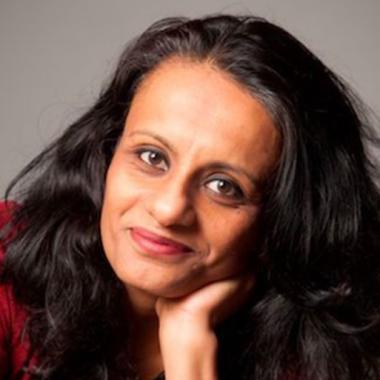
Priyamvada Gopal
Priyamvada Gopal is a public intellectual and Professor of Postcolonial Studies in the Faculty of English at the University of Cambridge. Her published work includes ‘Literary Radicalism in India: Gender, Nation and the Transition to Independence’ (Routledge, 2005), ‘After Iraq: Reframing Postcolonial Studies’ (Special issue of New Formations co-edited with Neil Lazarus), ‘The Indian English Novel: Nation, History and Narration’ (Oxford University Press, 2009) and, most recently, ‘Insurgent Empire: Anticolonial Resistance and British Dissent’ (Verso, 2020). Her work also appears extensively in critical as well as mainstream media including The Hindu, Outlook India, India Today, The Independent, The New Statesman, The Guardian and The Nation (USA).
Speaking on: Decolonising the University: Easier Said Than Done
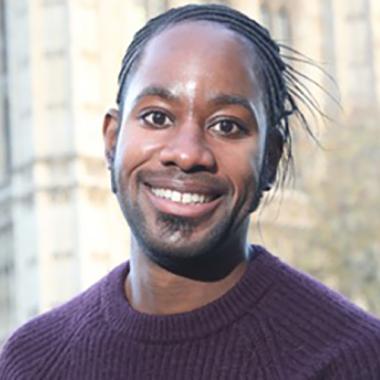
Jason Arday
Jason Arday is Professor of Sociology of Education at the University of Glasgow, School of Education, College of Social Sciences. Previously, Professor Arday was Associate Professor in Sociology at Durham University in the Department of Sociology and the Deputy Executive Dean for People and Culture in the Faculty of Social Science and Health. He is a Visiting Research Fellow at The Ohio State University in the Office of Diversity and Inclusion and a Visiting Professor at Durham University in the Department of Sociology. Jason holds other Visiting Professorships at Coventry University, London Metropolitan University and Nelson Mandela University. He is a Trustee of the Runnymede Trust, the UK’s leading Race Equality Thinktank and the British Sociological Association (BSA). Jason sits on the Centre for Labour and Social Studies (CLASS) National Advisory Panel and the NHS Race and Health Observatory Academic Reference Group. Jason is a Fellow of the Royal Society of Arts (RSA).
Speaking on: Decolonising the University: Easier Said Than Done
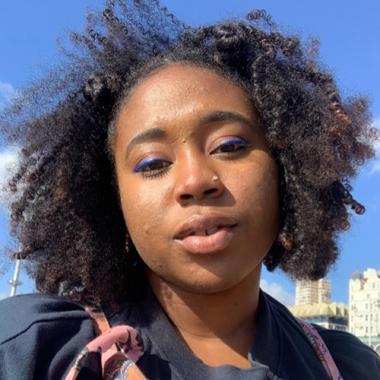
Rianna Walcott
Rianna Walcott is a final-year Ph.D candidate at King’s College London researching Black identity formation and discourse patterns in Black British digital networks, and is an English Literature graduate twice over from the University of Edinburgh. Rianna is University College London’s writing lab Scholar-in-Residence for 2021-2022, and co-founder of the decolonisation project Project Myopia, a London Arts & Humanities Partnership (LAHP)-funded initiative and website that promotes inclusivity in academia and crowd-sourced, decolonised curriculum.
Rianna is a writer and public speaker, with bylines for various publications including The Guardian, The BBC, Vice, Dazed, Metro and the Wellcome Collection. Rianna is also co-editor of forthcoming anthology about BAME mental health in the UK - The Colour of Madness, due for publication by Bluebird in May 2022. In the little time left over, Rianna moonlights as a professional jazz singer with her band, Ri-Ri and the WB. More information about her work can be found at riannawalcott.com, and she tweets at @rianna_walcott.
Speaking on: Decolonising the University: Easier Said Than Done
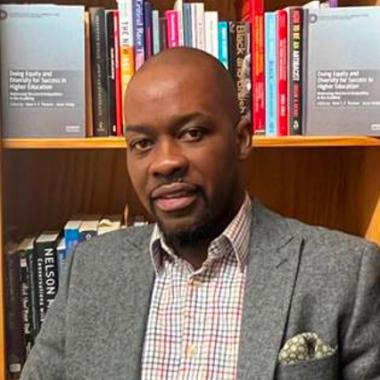
Dave S.P. Thomas
Dave S.P. Thomas is a Senior Advisor, Equality, Diversity, Inclusion and Leadership with Advance HE. He is an Occupational Scientist and Public Health Specialist, with a remit in social justice, culture and leadership. He is a Senior Fellow, Higher Education Academy (SFHEA), a Fellow of the American Association of University and Colleges Future Leaders Society (AAU&C) and a member of the Health and Care Professions Council Diversity and Inclusion Forum. Dave has researched and published extensively on matters relating to race, racial justice, inequality, inclusion, educational psychology, curricula reform, Occupational Justice and Social Justice. He is a co-editor of ‘Doing Diversity in Academia: Practices and Pitfalls, Bristol University Press 2022’; Co-editor of ‘Doing Equity and Diversity for Success in Higher Education, Palgrave Macmillan 2021’ and ‘Towards Decolonising the University: A Kaleidoscope for Empowered Action, Counterpress Oxford 2020’. Dave tweets as @DaveThomasOT.
Speaking on: Decolonising the University: Easier Said Than Done
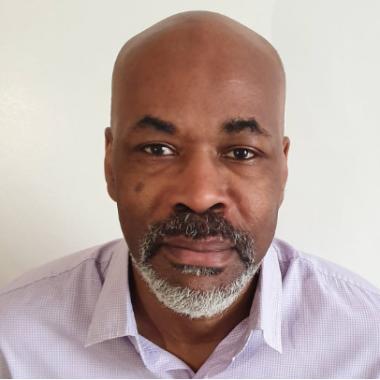
Winston Morgan (BSc, PhD, FHEA, FRSB)
Winston Morgan (BSc, PhD, FHEA, FRSB) is Professor of Toxicology, Equity and Inclusive Practice and also Director of Impact and Innovation in the school of Health Sport and Bioscience at University of East London. His primary areas of scientific research and teaching are in Toxicology, Pharmacology and Clinical Biochemistry. He is also involved in research and scholarly activity into factors, particularly race and ethnicity, which determine societal outcomes in higher education and medicine. Over the last 18 months he has written or contributed to numerous articles, given presentations, and appeared in the media on the impact COVID-19 has had on people described as Black, Asian or from other racial and ethnic groups. In particular he has written and spoken extensively on what is described as vaccine hesitancy and other reasons why there is lower vaccine uptake in certain communities. His media contributions include the Guardian, The Times, The Independent, the Standard, Metro, Sky news, LBC, The Conversation, YouTube, NPR in the USA, Channel 4, and on numerous occasions on BBC TV and radio nationally and locally. Many of his articles focus on the intersection of race, ethnicity, education, genetics, medicine and medical racism.
Speaking on: Decolonising the University: Easier Said Than Done

Deborah Husbands
Deborah Husbands is a Chartered Psychologist and Senior Lecturer in Psychology at the University of Westminster. As a Black Caribbean woman and 'first-generation' student, she has successfully navigated the hard path into higher education and leadership. Deborah is a Fellow of the Higher Education Academy and an Associate Fellow of the British Psychological Society. She is also a member of The Psychologist and Digest Editorial Advisory Committee. Deborah is the Outreach Lead for Psychology at the University of Westminster and works with schools and colleges to bridge the transition into higher education for school students, with a keen focus on improving access for racially-minoritised students. She also leads the Black History Year steering group, co-chairs the Black and Minority Ethnic Network at Westminster, and sits on university-level Equality, Diversity and Inclusion committees. Deborah's research interests include exploring experiences of belonging as well as deconstructing race, gender and ethnicity in under-represented groups using critical race theories to better understand marginality and oppression.
Speaking on: Decolonising the University: Easier Said Than Done:
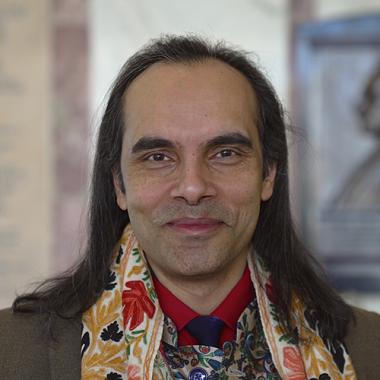
Dibyesh Anand
Dibyesh Anand is the Head of the School of Social Sciences at the University of Westminster and a Professor of International Relations. He is the author of monographs ‘Geopolitical Exotica: Tibet in Western Imagination’ and ‘Hindu Nationalism in India and the Politics of Fear’ and has spoken about, and published on, varied topics including Tibet, China-India border dispute, Hindu nationalism, Islamophobia, and conflict in Kashmir. He is passionate about challenging the divide between academia and activism and identities as queer in personal and political terms. He is the co-chair of University’s EDI Committee and BME Network and an elected member of the Court of Governors.
Host
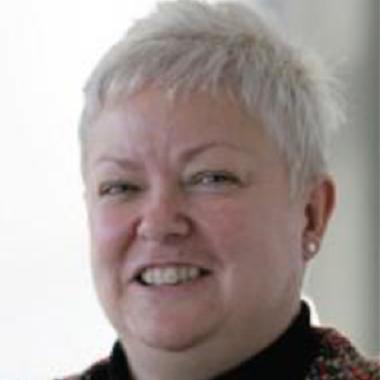
Alex Hughes
Alex Hughes is a highly experienced University leader who has worked in institutions across the spectrum of UK HE, building and delivering strategic priorities. As Deputy Vice-Chancellor for Global Engagement and Employability at the University of Westminster, she leads the University's internationalisation activities, working with colleagues across the institution. She also leads our employability strategy, placing it at the heart of student experience priorities. She is co-Chair of the University’s EDI Committee. Previously, she was Pro-Vice Chancellor External at the University of Kent, where she led the University’s Internationalisation Strategy. Her remit also included the non-academic student experience and the employability agenda. The student experience was a focus of Alex’s work at Birmingham University, where she was Pro-Vice Chancellor for Quality and Students.
Host

Zahra Butt
Zahra Butt is the President of the Student Union. She studied Creative Writing and English Literature at Westminster and was extensively involved in the Students’ Union as BAME Officer, NUS Delegate, Course representative and School Representative.
Other organisers

Annapurna Menon
Annapurna Menon is a doctoral researcher at the Centre for the Study of Democracy and a Visiting Lecturer at the University of Westminster. Her current research project is focused on coloniality of postcolonial nation states, with India as the case study. Her research interests include postcolonial and decolonial studies and theories, right-wing nationalism, Hindutva, and gender.
Other organisers
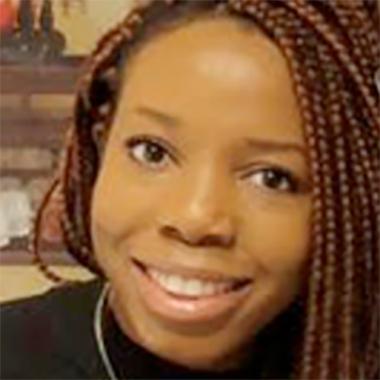
Grace Egbewole-Adereti
Grace Egbewole-Adereti is the Events Manager and Equality Diversity and Inclusion Programme Co-ordinator in the Vice Chancellor’s office at University of Westminster. Grace has worked in a variety of different areas in public, private, charity, academic, crown service and membership sectors locally, nationally, and internationally within early years education, governance, mental health, legal and equality, diversity and inclusion fields. This experience has fortified knowledge of relationship building, leveraging transferrable skills for progression and strategic thinking within organisations.
Other organisers

